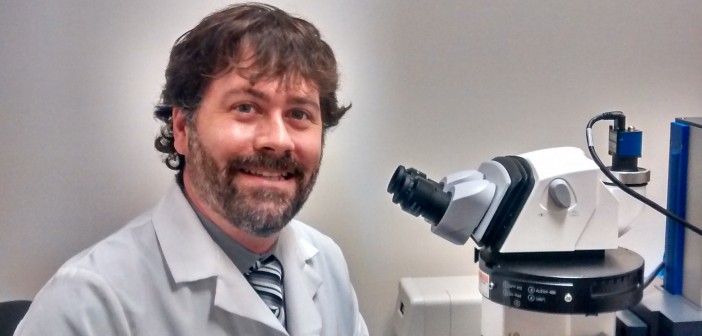In honor of Heart Disease Awareness Month, we interviewed heart disease researcher Peter Crawford, MD, PhD, associate professor and director of the Cardiovascular Metabolism Program at Sanford Burnham Prebys Medical Discovery Institute (SBP) in Lake Nona about how he takes care of his own heart and what he predicts for the future of cardiology.
How has being a cardiologist and heart researcher affected the way you take care of your own health?
There’s no control case in which I’m in a different profession, but I imagine I would be living a similar lifestyle—not smoking, staying active, eating in moderation, and hoping my genes aren’t working against me.
But the factors I mentioned only explain about half of the risk of cardiovascular disease, and since there are 700,000 deaths caused by cardiovascular disease in the U.S. each year, there are a lot of lives that still need saving. That’s why I’m so driven to do what I do—cardiovascular research stands to make an enormous impact on public health.
So the next question, about unconventional advice, seems unnecessary—
Actually, I’d like to point out that what’s protective for most people may not be helpful for every individual. We’re all different, so it’s important to consult your doctor to figure out what’s best for your own heart. In the longer term, it is imperative that we understand what confers different degrees of protection and risk among individuals of similar age and behavioral patterns.
Where are we in the process of figuring out what accounts for the remaining half of the risk for heart disease?
Every year we’re making incremental advances in understanding the connections between genes, lifestyle, and heart health. To accelerate that progress, we particularly need large-scale collaborations that integrate all of the “omics” technologies to find the answers.
Where does your research fit into that?
Many of us at SBP are committed to understanding how metabolism in non-cardiac organs like the liver, skeletal muscle, and fat influences the heart, often using data-rich (omics) approaches. It will be really important in advancing our understanding of how diet influences cardiovascular risk in each individual—we know that’s very personal, but we still need to identify the metabolomics signatures that will tell us which foods and drugs will benefit or harm which people.
Our work could also identify targets for new drugs to prevent cardiovascular complications by interrupting metabolic loops, which could also slow the advance of metabolic diseases like type 2 diabetes and fatty liver. The success of type 2 diabetes drugs like incretin mimetics and SGLT2 inhibitors in reducing risk of cardiovascular death shows that treating metabolic problems is an effective way to protect the heart.

